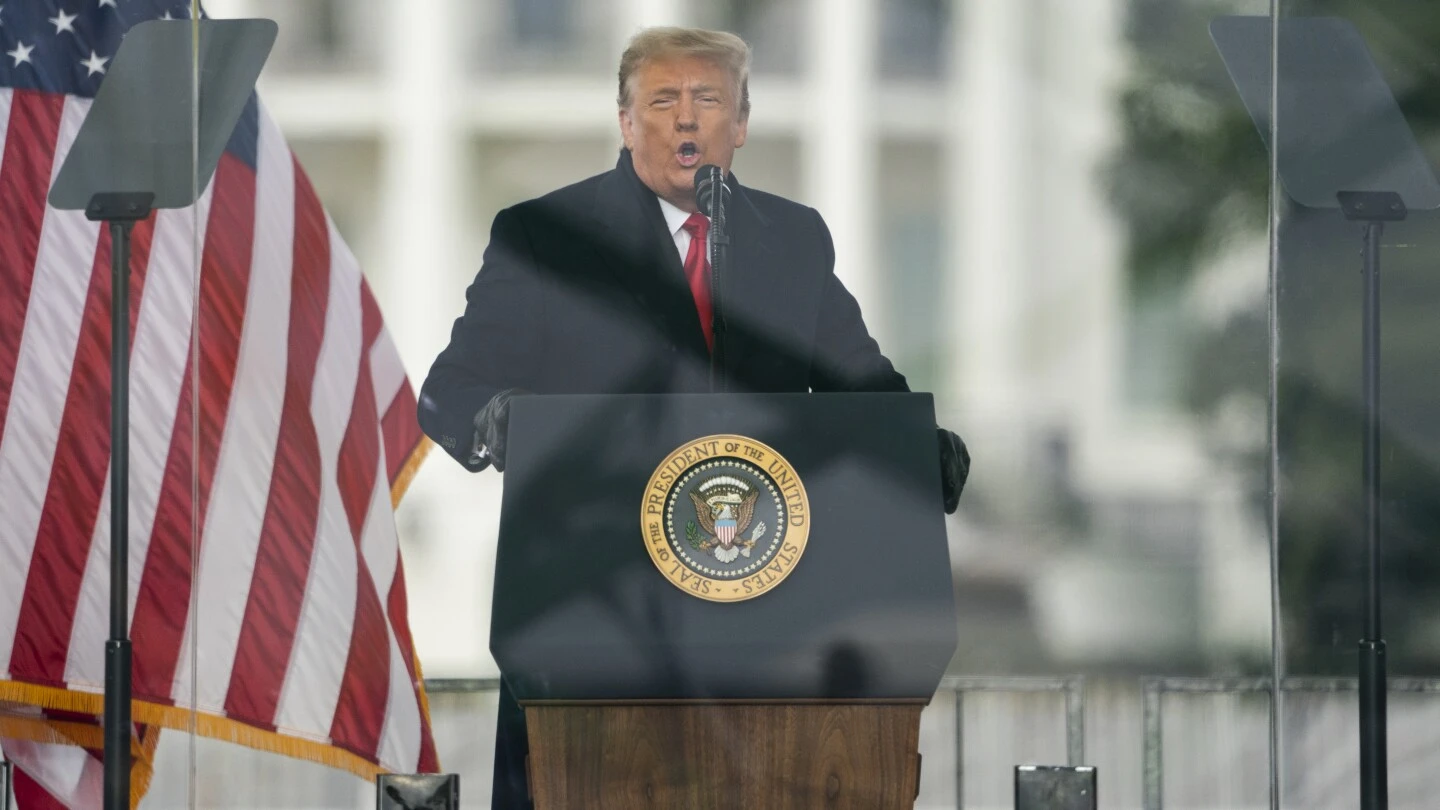Liberal groups seek to use the Constitution's insurrection clause to block Trump from 2024 ballots
Liberal groups seek to use the Constitution's insurrection clause to block Trump from 2024 ballots

Liberal groups seek to use the Constitution's insurrection clause to block Trump from 2024 ballots

As former President Donald Trump dominates the Republican presidential primary, some liberal groups and legal experts contend that a rarely used clause of the Constitution prevents him from being president after the Jan. 6, 2021, attack on the U.S. Capitol.
The 14th Amendment bars from office anyone who once took an oath to uphold the Constitution but then “engaged” in “insurrection or rebellion” against it. A growing number of legal scholars say the post-Civil War clause applies to Trump after his role in trying to overturn the 2020 presidential election and encouraging his backers to storm the U.S. Capitol.
Two liberal nonprofits pledge court challenges should states’ election officers place Trump on the ballot despite those objections.
The effort is likely to trigger a chain of lawsuits and appeals across several states that ultimately would lead to the U.S. Supreme Court, possibly in the midst of the 2024 primary season. The matter adds even more potential legal chaos to a nomination process already roiled by the front-runner facing four criminal trials.
